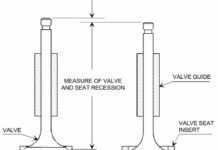
The office of my Flight Surgeon was littered with the usual magazines, health books, drug interaction guides, free pens with medical supply house names on them, and of course, the ubiquitous television in the corner of the room talking about how you should take care of yourself and strive not to smoke, drink, inhale radon gas, ingest carcinogens, or play in areas that are aflame or are about to ignite.I was sitting in my waiting chair carefully filling out yet another “application for airperson medical certificate” form. Every six months, like clockwork, all first-class-medical-seeking people must fill out a form attesting to all of their weaknesses, vices, illnesses, brushes with the law, and the history of our airplane crashes, if any.We also have to sum up all of the flying time in our lives and report on how much we had been flying for the past six months. This is the hardest part of the form, because I can never remember what I put down last time. I wonder if they have a clerk at the Aero Medical Office in Oklahoma City who is tasked to keep track of the flight time we put on the form. If so, I’m doomed, because not only do I have a fear of math, but since my first 10,000 flight hours I’ve been very lax about logging stuff. I mainly just approximate my time now. Flying about 75 hours in the average month I’m always sure I’m current.It used to be that when I was starting out and went for my flight physical I was terrified that they’d find something that would ground me. After 25 years of airline flying I’m now sometimes afraid that they won’t. It seems a footrace as to whether or not my body will give out, I will age out at 60 or the airlines will all go belly-up. It’s a jungle out there and more often than not, I feel like I’m suffering from jungle rot.
The Corporate Game
My waiting-room partner this day was Kurt, a corporate pilot who now flies a very nice King Air. Only a few short years ago, he was the kid that mowed my farm’s fields and was the only person on my place who knew how to run a chain saw without injuring anybody. He had gone on to finish college, get his ratings, do his time as a lineboy, and land a job flying his bosses all over in a glorified weed-wacker.I wondered if he still had the dream to be a captain at a major airline just like his former farm employer.”Not really,” he said. “The corporate gig really isn’t so bad. I get to go to interesting places like Central America, they pay me enough, for now at least, and I’m learning a lot. It seems, for now at least, much better to hang on to the flying job I have than to get an airline job then get furloughed and then have to come back and look for the job I already have.”
Dysfunctional Family
There are a couple thousand guys on my airline who would probably agree with that. They signed on with our particular carrier because they were told that we were a “family” airline that would always look out for its people. Since then, in my view, the family has gone dysfunctional.The trouble with furloughs is that they come at the worst time for a pilot to go out and get another job. If the airlines are laying off it is likely that other areas are in a down-spiral as well.We are all very happy that the senior management guys took care of themselves at most airlines and have divorced both their compensation and retirements from the success or failure of their company’s. I’d hate to have to think that these fragile people would have to face a post-airline bankruptcy world without at least a few million in their accounts.”The best part of the whole management bonus thing is the reason they give for getting it,” Kurt said. “They say they have to pay these guys millions to keep them from leaving the companies. In many cases, their bonus packages are based on meeting loss targets, not profit ones. Even though I’ve got this business degree, I must not understand that world at all. What airline would be stupid enough to hire a CEO of another airline that had just lost two billion dollars?”We could spend all morning talking about how strange the flying world has become, but I’m facing a blood-pressure screening so maybe we ought to change the subject. I know a subject that won’t get anybody upset — my latest article in our airline’s safety magazine: The Pointy End.
Becoming a Captain
“You write stuff?” Kurt asked.Not things that anybody would pay money to read. The Flight Training Department at my airline holds little “charm schools” for their new captains. It used to be a three-day extravaganza of free food, drink and fun. Now it’s a two-day marathon held in the ground-school building. Instead of a free happy hour, they get leftover sandwiches and soda from inbound airplanes.They asked me to write a short piece on what I thought made a good airline captain. I’m pretty sure they meant for me to write about knowing your airplane, keeping clean in mind and spirit and not taking the FAA Administrator’s name in vain. This only proved that they don’t know me very well. There is a copy of The Pointy End on the table over there right next to that pamphlet on breast-feeding. Throw it over to me and I’ll read it for you.”I’m glad I’m at the doctor,” said Kurt, “because I’m feeling a little queasy.”
Thoughts on Captaining And Such
(Published in The Pointy End, a professional airline’s fictitious professional safety newsletter.)
You are a captain because you are a survivor and because you have a seniority number that has a lower numerical value than the other pilots. You aren’t a captain because you are smarter than the other pilots, better-looking than the other pilots or even because you have a better personality than the other pilots. Your brown-nosing-the-boss skills didn’t get you the gig and your corporate-ladder-climbing strategies didn’t get you in the left seat. You are only here because you are still alive and because your seniority score finally got you the job.That being said, you have to agree that no matter how you got the job, the job feels pretty damn good. Finally, you get to fly your way. You have the chance to show off your leadership skills and to impress the aviation world with your skill, verve and talent for that pilot-in-command thing.You’ll find that people will pretend to be interested in what you are saying. Mechanics will consult with you about the condition of your aircraft. Flight attendants will complain to you, not your co-pilot, that catering hasn’t come out to the aircraft yet. They will expect you to brief them on such matters as how long the flight is going to be and how bumpy the air is so they can plan their service. Even gate agents will want your autograph — on the flight dispatch release form.A word about that form is probably a good idea. It says that you, personally, are able to take the flight both mentally and physically and that you agree with the dispatcher’s plans for the flight, including fuel. You will routinely sign off on this form before each and every leg, but always remember this: The form is your ticket to all your power. You and only you can decide if this puppy gets off the ground or not.If you aren’t sure it is going to be safe, and then you go fly the thing and then bend metal, it is your head they’ll be after. You are literally the final word and the last link in airline safety. I know you only got here because you haven’t managed to kill yourself in an airplane, yet, but it’s your job to be the head guy, the big cheese, the … well, you get the idea.Try not to fixate all your energy on worries about legalities. To be sure, staying legal is a great way to continue a long, happy flying career and I have nothing at all against doing things by the book and following the rules.Beware of being legal yet being unsafe. That is where a captain really earns his or her pay. One time a few years back during another cost-cutting frenzy at the airline, I went out to my trusty MD-88 ready to fly to our next stop. Then I noticed that it had 23 Maintenance Carry-Overs (MCOs). An MCO is something mechanically wrong with the airplane that they don’t have to fix right away. Two or three MCOs is fairly common; 23 isn’t. Yet 23 maintenance problems on one plane, under our current system, is still perfectly legal.The problem was that a lot of the MCOs on that day had to do with stopping the airplane. Autospoilers, autobrakes, thrust reversers and auto throttles were just a few of our broken parts. We were headed to a wet, short runway.We were legal but we sure as hell weren’t going. If you work for a good company like I still think I do, they’ll back up your decision. If you don’t work for good people, you have to stand your ground anyway because, you know what? After you run off the end of a wet piece of concrete and hurt some people in a situation like that, nobody is going to fault the company, they are going to blame you, and quite rightly so.Don’t be afraid to make a decision even if it’s going to be unpopular.Okay, enough of the super-serious stuff. Here is a short list of good captain traits that you should memorize and pass along to your children and grandchildren.Always help female flight attendants out of the hotel van. I know this is a brave, new, liberated world and we’re all equal, but you aren’t wearing high heels or at least I hope you’re not.Always buy the first round at layover dinners during the rare occasions you get to go out with your crew.Never, ever let a new-hire pilot buy their own drinks. The airlines don’t pay them enough to eat, so a free beer or cola will really be appreciated. Then, when they’re captains, they can buy some drinks for their crews. It’s paying it forward. It is the circle of life, Simba …Don’t do walk-arounds unless your co-pilot is running late. Most pilots don’t agree with me on this advice, and some captains like to ingratiate themselves by trying to be “one of the guys” and do the work of other crew members. I personally think you can do your crews a bigger service by being a good captain not by trying to be a mediocre co-pilot. If you are like me you spent at least 15 years walking around jets in the rain. Now it is your co-pilot’s turn. It is that circle of life thing again.Never repeat anything you hear from a co-pilot, flight attendant, or even a jump-seat rider outside the cockpit if it is personal. People will tell you things in the cockpit they don’t really want outside of it. Co-pilots will talk about upcoming divorces and problem children. Think of the cockpit as a confessional booth and I think you’ll do fine.Always lead by doing. Don’t make fun of how your co-pilot is dressed and then go around all day with your shirttail hanging out of the open fly of your uniform pants.You have been around long enough that you can trust your feelings. If something doesn’t feel safe, don’t do it.Nobody wants to look at pictures of your prostate operation.Unfortunately, you’ll have to act like you are interested in viewing pictures of the cats of Flight Attendants, as well as the baby pictures of their ankle biters. Be nice, because you never know when you’ll be retired and non-revving to Maui and be in dire need of another bourbon. Never ever burn flight attendant bridges.Always offer to fly the first leg of a trip so your co-pilot can lower his or her standards. Once they see how sloppy you fly, they can relax and begin to enjoy their trip.Your crew’s welfare is just as important as your passengers’. Make sure on layovers that everybody gets to their rooms unscathed. Buy some dinners, rent some cars, rub in some sunscreen — be there for them.That is about it. A good captain never stops learning and you’ve just started school. Good luck!


































